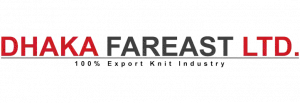Understanding clothing costs in Bangladesh starts with raw materials. Cotton, polyester form basic clothes. Bangladesh’s rich cotton access influences primary costs significantly.
Labor and Skill
In making clothes, the people involved are crucial. In Bangladesh, skilled workers are vital. Labor costs are lower there, impacting production expenses.
Factory Operations
Operations in factories affect costs. Running machines and maintenance add up. These expenses impact clothing prices. Efficient factories may provide better prices.
Overhead Expenses
In addition to production costs, there are administrative expenses, utilities, and overheads. These are the hidden costs that keep things running smoothly. It’s crucial to control these expenses to manage clothing costs.
Compliance and Safety Measures
Bangladesh improved workplace safety in clothing industry. Manufacturers meet strict standards. Safety measures’ cost adds to clothing production expenses.
Export and Transportation
When clothes are ready in Bangladesh, getting them elsewhere costs. You have shipping, customs, and other export fees to factor in the final price of clothing.
Economic Factors
The cost of clothing in Bangladesh and worldwide can vary. Factors like exchange rates, inflation, and market demand play a role. Manufacturers need to consider these external influences when setting prices.
Brand Influence
The brand impacts pricing. Famous brands cost more for reputation, marketing, and value.
To grasp clothing costs in Bangladesh, think about materials, labor, operations, and more. It’s a mix of factors manufacturers juggle for fair pricing.

